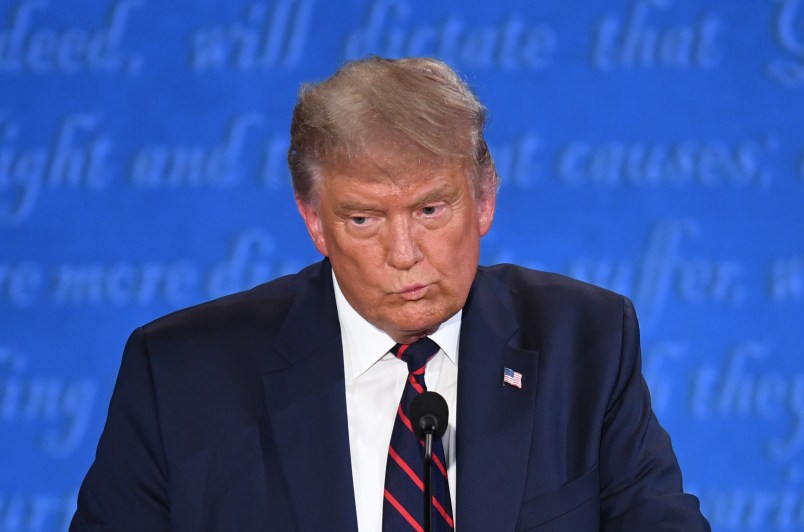A state court judge in Philadelphia rejected Friday a request by the Trump campaign that it be allowed to send poll watchers to so-called “satellite” election sites, where voters can simultaneously apply for and then submit mail-in ballots.
The lawsuit was filed against the Philadelphia County Board of Elections after President Trump complained that Philadelphia election officials blocked his supporters from observing voting at one such site.
“Bad things happen in Philadelphia, bad things,” Trump claimed during the first presidential debate, as part of his broader rhetoric stirring baseless fears of fraud in the election.
The Trump campaign had yet to certify any of its poll watchers at the time of the episode, the Philadelphia Inquirer reported at the time, and Friday’s opinion backed up a widely-held interpretation of state election law that said election officials were not obligated to allow poll watchers to observe voting at satellite sites.
The satellites sites were created in a sweeping election overhaul bill passed last year that reformed several aspects of voting in Pennsylvania, well before the pandemic.
The satellite sites, which can open several weeks before Election Day, serve as a one-stop shop for Pennsylvanians to register to vote, apply for mail-in ballots, fill out those ballots and then submit them.
In his opinion Friday, Judge Gary Glazer said that satellite sites did not fit into the clearly defined categories in state law for poll watching activities.
Glazer noted that in the 2019 legislation, as well as in the more recent voting reforms enacted this year because of the pandemic, lawmakers showed they were aware of poll watchers and even gave watchers the ability to watch the processing and the counting of mail-in ballots. But neither of those bills gave poll watchers the permission to watch the “ministerial activities” around mail-in voting that happen at satellite sites, the judge said.
“For this court to read into Election Code the right of watchers to be present in Board of Elections’ offices, which the Legislature did not expressly provide, would be the worst sort of judicial activism,” Glazer said. “This court will not engage in such improper conduct, which would be a clear usurpation of the legislative function.”
Read the opinion below:



